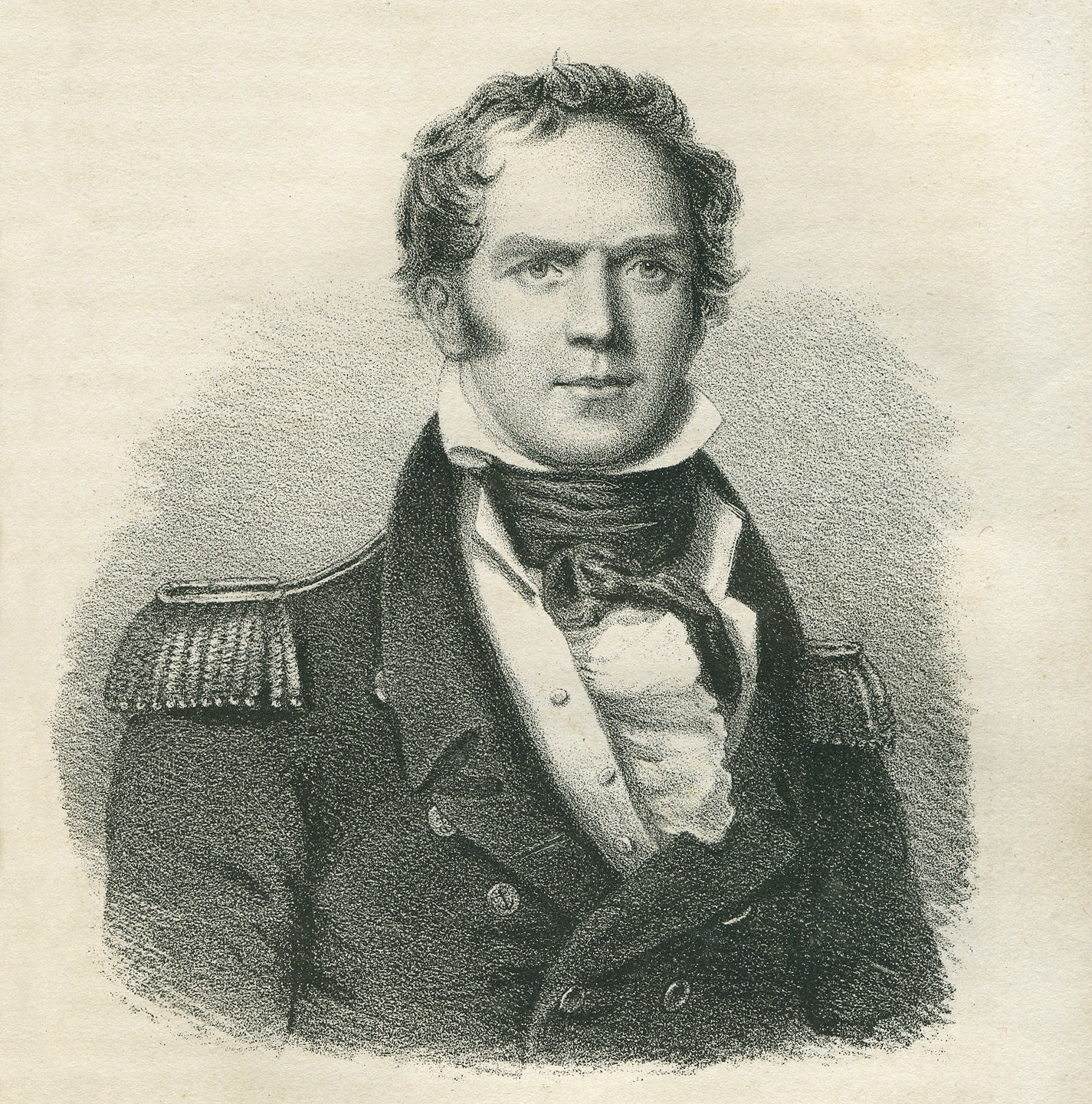
May 18, 1788 – April 13, 1827
Scottish explorer Hugh Clapperton first got his sea legs at the age of thirteen navigating between Liverpool and North America. Years later, impressed into the navy, he rose to the rank of midshipman while fighting in the Napoleonic Wars. He is said to have been the first to hoist the British flag when in 1810 the navy stormed Port Louis.
After the wars he traveled to Canada and then back to Edinburgh in 1817. It was in Edinburgh around 1820 that Clapperton met Dr. Walter Oudney, who invited him on expedition to west-central Africa. In 1822, with Maj. Dixon Denham and the pair set out from Tripoli to cross the Sahara on horseback. It was on this journey that they became the first Europeans to see Lake Chad. Trying to solve the mystery of the Niger’s source and thinking it might be related to the lake they explored the kingdoms around the lake. The group then discovered the Shari River, which emptied into Lake Chad.
It was sometime in 1823 the group fought over who was the leader, resulting in Denham going toward the SE and Clapperton and Oudney going west toward the Niger River. Denham would later downplay Oudney and Clapperton’s role in the discovery of Lake Chad and go so far as to accuse Clapperton of having homosexual relations with a servant to discredit him.
Oudney died on the road at Murmur in January 1824. Clapperton continued on, visiting Kano and then Sokoto where the Fulani Sultan Muhammed Bello refused to allow him to continue on to the Niger only 150 miles away. Bello, however, was friendly to Clapperton and expressed interest in developing trade with Britain which Clapperton was able to parlay into a promotion to commander and a second journey to West Africa.
Unfortunately upon his return to Kano in 1826 (having departed for his second journey only three months after returning to England) Clapperton found that Sultan Bello had become suspicious of British imperialism and refused to enter into agreement with him.
Whether brought on by the failure of his expedition, road weariness, or a combination of many things Clapperton became ill and died on April 13, 1827.
His belief that the Niger emptied into the Atlantic at the Bight of Benin was proved correct by his servant and biographer, Richard Lander, in a later expedition.
For more reading:
Clapperton, H. (1826). Difficult and Dangerous Roads – Travels in Sahara and Fezzan, 1822-1825. Eds. Bruce-Lockhart, J. & Wright, J. Sickle Moon Books, London. ISBN:9781900209069












Pingback: Its All About Clive Owen | Regency Reader